En Anglais, On Ne Dit Pas “quatre Vingt Dix Neuf”, On Dit “ninety Nine” Qu'on Pourrait Traduire
En Anglais, on ne dit pas “quatre vingt dix neuf”, on dit “ninety nine” qu'on pourrait traduire comme “Hurr durr, regardez mois, j'ai un système de numérotation fonctionnel” et je crois que c'est magnifique.
More Posts from Littlelanguagefox and Others
ah yes, my favourite foreign language feel, “I know what all of those words mean individually but not together like that”


Notre ami le Subjonctif
she’s gonna pass her classes and she’s gonna graduate
Diary Writing in French
cher journal - dear diary
- you can talk about how your day was - this is a great opportunity to apply your knowledge of past tenses.
How to say that you had a good day -
j’ai passé une très bonne journée
j’ai passé une excellente journée
j’ai passé une belle journée
j’ai eu une merveilleuse journée
j’ai passé une journée fantastique
How to say that you had a bad day -
Je n’ai pas eu une bonne journée
j’ai eu une journée affreuse - a really bad day
j’ai eu une mauvaise journée
j’ai passé une journée difficile
How to say that you had a busy day -
j’ai eu une journée des plus occupés
j’ai eu une journée chargée
la journée d’aujourd’hui s’est avérée fort occupée
How to say that you had a quiet/relaxing day -
j’ai eu une journée tranquille
j’ai passé une journée tranquille
j’ai profité d’une journée de détente
Talking about time -
hier - yesterday
hier soir - last night
hier matin - yesterday morning
hier après-midi - yesterday afternoon
demain - tomorrow
demain matin - tomorrow morning
demain après-midi - tomorrow afternoon
demain soir - tomorrow evening
le lendemain - the next day
cette semaine - this week
la semaine dernière - last week
la semaine prochaine - next week
ce mois-ci - this month
le mois dernier - last month
le mois prochain - next month
cette année - this year
l’année dernière - last year
l’année prochaine - next year
when talking about a coming day e.g. next saturday = samedi prochain/le samedi suivant
To add a dash of drama -
et mon cul, c’est du poulet ? - yeah right!
faire du cinéma - to be a drama queen
j’ai du mal à croire que - I can’t believe that
jai vraiment foiré sur ce coup là - I really stuffed up!
je n’arrive pas à y croire ! - I can’t believe it
je n’en crois pas mes yeux - I can’t believe my eyes
je n’en reviens pas ! - I can’t believe it!
mon cul ! - my arse! (when you don’t believe someone, say if they’ve been lying to you)
Let me know if there is anything that you think I should add or if there are any corrections:)

this is the money dog, repost in the next 24 hours and money will come your way!!
Creo en Ti por Reik: Vocabulario y Gramática
Esta canción escuché por la primera vez hoy y me sentí que “Creo en Ti” (video abajo)sea una de mas canciones lindas de mi vida. Entonces, quiero compartir con ustedes alguno vocabulario clave y algunos puntos gramaticales que aparecen dentro de esta canción. ¡Disfruta!
TR: I heard this song for the first time today and I felt that “Creo en Ti” is one of the most beautiful songs of my life. So I want to share with you some key vocabulary and some grammar points that appear within this song. Enjoy!
Letras (Lyrics)

Vocabulario Calve
creo en ti - I believe in you
(la) noche - (the) night
(el) cielo - sky (or heaven depending on context)
(la) calle - street
(el) laberinto - labyrinth
rendir (v.) - to defeat (this verb has many meanings, in this context, it means defeat)
(la) piel -skin
(el) corazón - heart
desarmar (v.) - to disarm, to take apart, to disassemble
(el) amor - love
(las) luces - lights
(el) alma (n.f.) - soul
indestructible (adj.) - indestructible
(el) dolor - pain
(las) fantasmas - ghosts, phantoms
(la) paz - peace
(la) caída libre - free fall
Gramática
Porque el cielo ha conspirado en mi favor - Because the heavens have conspired in my favor:
ha conspirado = present perfect tense (haber + participio pasada)
Me haces bien - You make me better (literally: you make me well)
me (pronombre) + haces (hacer en el presente 2a persona) + bien (adjetivo)
Creo en ti - I believe in you
Creo (creer en el presente 1a persona)
Creer means to believe. When pared with “en” + “persona/pronombre” it means “to believe in...”
Me ha vuelto indestructible - I have become indestructible
volverse (con pronombre) = to become
“vuelto” is the past participle of volver(se), it’s irregular
me vuelvo (presente) = I become
me ha vuelto (pres. perfect) = I have become
Mi dolor se quedo kilómetros atrás = my pain stayed kilometers away
se quedo = quedarse en el pasado 3a persona
this verb always needs a reflexive pronoun
Past tenses
te encontré = I found you
crucé = I crossed
esperé = I hoped/waited (what a fun wordplay)
This was super fun to work on! I didn’t include everything because that would take forever! I love this song so much, it’s so cute and sweet.
If you have any questions, reply to this post and hopefully I can help you out. This is my first time making one of these!
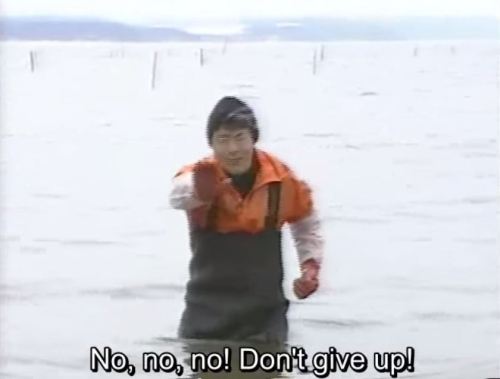
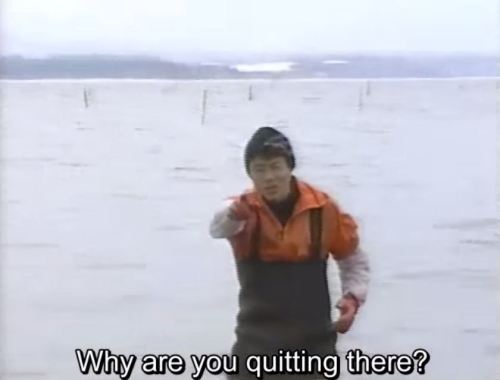
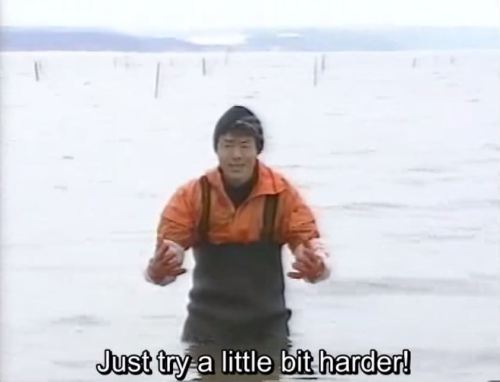
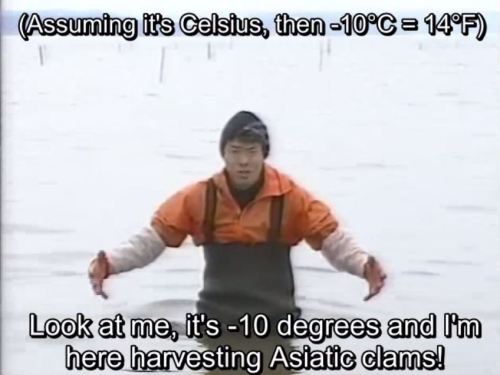

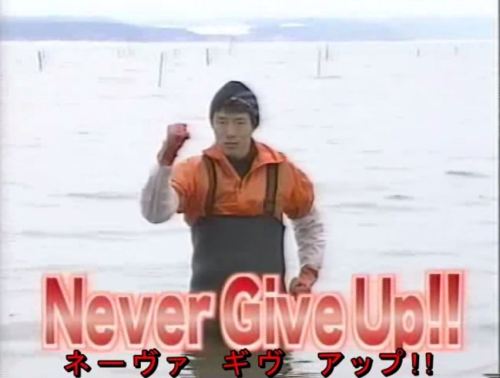

Armed with such [linguistic] knowledge, teachers could impart grammar not as an onslaught of desiccated definitions or things to underline, but puzzles to solve. Why does “She destroyed” not feel like a full sentence? (That allows the introduction of concepts such as “direct object”.) How does Shakespeare use “do” differently from modern writers? (Here you can sneak in historical linguistics.) Where might you hear “we was” instead of “we were”? (This can introduce class, dialect and situational appropriateness.) One study found that adding this kind of analysis—albeit in foreign-language classes, not English—made almost 60% of the pupils want to learn more linguistics, particularly language history. Meanwhile the “Linguistics Olympiad” is a popular extra-curricular contest that instils linguistic thinking; perhaps everyone should take part.
The agony and the ecstasy of grammar (via allthingslinguistic)






-
 potentiallyahuman reblogged this · 1 month ago
potentiallyahuman reblogged this · 1 month ago -
 hauntedbrowneye reblogged this · 1 month ago
hauntedbrowneye reblogged this · 1 month ago -
 disaster-magnet reblogged this · 1 month ago
disaster-magnet reblogged this · 1 month ago -
 beeherself reblogged this · 2 months ago
beeherself reblogged this · 2 months ago -
 bbboar liked this · 3 months ago
bbboar liked this · 3 months ago -
 alchemistique reblogged this · 3 months ago
alchemistique reblogged this · 3 months ago -
 spicy-cannoli reblogged this · 3 months ago
spicy-cannoli reblogged this · 3 months ago -
 spicy-cannoli liked this · 3 months ago
spicy-cannoli liked this · 3 months ago -
 rosie-b reblogged this · 3 months ago
rosie-b reblogged this · 3 months ago -
 rosie-b liked this · 3 months ago
rosie-b liked this · 3 months ago -
 juxies reblogged this · 3 months ago
juxies reblogged this · 3 months ago -
 weyouns-boyfriend reblogged this · 3 months ago
weyouns-boyfriend reblogged this · 3 months ago -
 rjam9 reblogged this · 3 months ago
rjam9 reblogged this · 3 months ago -
 compasspointlibrary reblogged this · 3 months ago
compasspointlibrary reblogged this · 3 months ago -
 natevenhere liked this · 3 months ago
natevenhere liked this · 3 months ago -
 stuffthatdelightsme reblogged this · 3 months ago
stuffthatdelightsme reblogged this · 3 months ago -
 rjam9 liked this · 3 months ago
rjam9 liked this · 3 months ago -
 onefeather-endlessocean reblogged this · 3 months ago
onefeather-endlessocean reblogged this · 3 months ago -
 trianglesoloist reblogged this · 3 months ago
trianglesoloist reblogged this · 3 months ago -
 abyssal-voids liked this · 4 months ago
abyssal-voids liked this · 4 months ago -
 daengeli liked this · 4 months ago
daengeli liked this · 4 months ago -
 appleblintz liked this · 4 months ago
appleblintz liked this · 4 months ago -
 yorickofyore reblogged this · 4 months ago
yorickofyore reblogged this · 4 months ago -
 aletheablanchett reblogged this · 4 months ago
aletheablanchett reblogged this · 4 months ago -
 luxe-terna reblogged this · 4 months ago
luxe-terna reblogged this · 4 months ago -
 hahanoiwont liked this · 4 months ago
hahanoiwont liked this · 4 months ago -
 heressomestuffs reblogged this · 4 months ago
heressomestuffs reblogged this · 4 months ago -
 starryswitchy liked this · 4 months ago
starryswitchy liked this · 4 months ago -
 liturgychoir liked this · 4 months ago
liturgychoir liked this · 4 months ago -
 fivespicespr0n reblogged this · 4 months ago
fivespicespr0n reblogged this · 4 months ago -
 beforetheclonepocalypse reblogged this · 4 months ago
beforetheclonepocalypse reblogged this · 4 months ago -
 deeplovelydark reblogged this · 4 months ago
deeplovelydark reblogged this · 4 months ago -
 obrienpolycule reblogged this · 4 months ago
obrienpolycule reblogged this · 4 months ago -
 ghostigram reblogged this · 4 months ago
ghostigram reblogged this · 4 months ago -
 zephyrantha reblogged this · 4 months ago
zephyrantha reblogged this · 4 months ago -
 rjwps reblogged this · 4 months ago
rjwps reblogged this · 4 months ago -
 elaboratebeauty liked this · 4 months ago
elaboratebeauty liked this · 4 months ago -
 petecrowarmstrong reblogged this · 4 months ago
petecrowarmstrong reblogged this · 4 months ago -
 boringpandas reblogged this · 4 months ago
boringpandas reblogged this · 4 months ago -
 evilmuffun666 reblogged this · 4 months ago
evilmuffun666 reblogged this · 4 months ago -
 evilmuffun666 liked this · 4 months ago
evilmuffun666 liked this · 4 months ago -
 josbrago reblogged this · 4 months ago
josbrago reblogged this · 4 months ago -
 1h4v3nol1f3 reblogged this · 4 months ago
1h4v3nol1f3 reblogged this · 4 months ago
